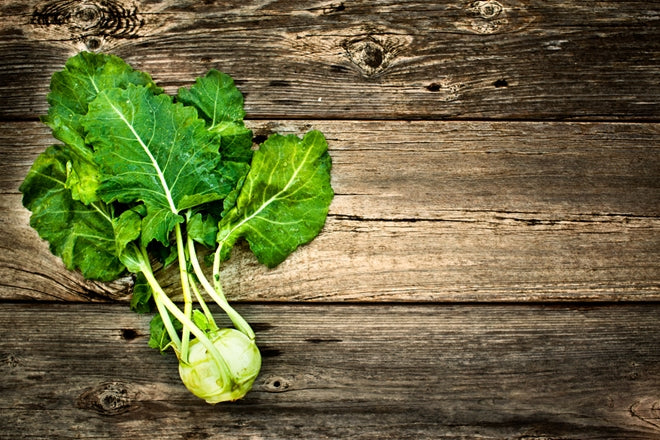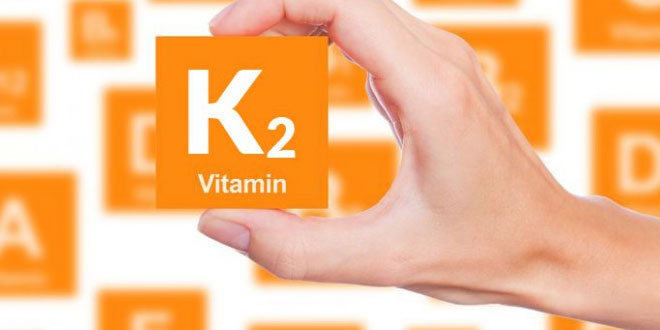There are numerous health benefits to cutting meat and dairy products out of your diet. That's why those looking to improve their well-being consider going vegan. But there's a problem with this specific regimen that many tend to overlook - its inability to provide enough essential vitamins and minerals on its own. Without supplementing a vegan diet, a person will not thrive the way God intended, and will have less support for fighting disease, illness and even cancer.
Cancer Rates Aren't as Likely to Diminish as You'd Expect
By following a diet that consists primarily of vegetables, you'll receive an abundance of nutrition that keeps your defense system strong - but it's not enough to reduce cancer risk on its own. For example, researchers at Oxford University analyzed a group of 32,491 meat eaters, 8,612 fish eaters and 20,544 vegetarians - 2,246 of those being vegans - and found a total 4,998 cancer incidents. While a majority of those cases - 3,275 of them - belonged to the meat eater group, there were still 520 cases among fish eaters and 1,203 in the vegetarians.
"Vegans go through a lot of trouble just to get a 18- or 19-percent decrease in cancer rates," said Dr. Michael Donaldson, Ph.D., a Hallelujah Diet health expert. "When diet and exercise is related to at least 80 percent of all cancers, an 18 percent improvement is basically a failure."
In a different study, researchers at Loma Linda University in California analyzed the risk of colorectal cancer for people following different vegetarian diets over a 7.3 year stretch. The four categories included vegan, lacto-ovo vegetarian, pescovegetarian and semi-vegetarian. Here's a brief description of each classification:

Vegan - Someone who strictly does not use or consume animal products.
Lacto-ovo vegetarian - A person who eats a vegetarian-based diet but still consumes animal products like eggs and dairy.
Pescovegetarian - Someone who follows a primarily plant-based diet but also consumes fish and seafood.
Semi-vegetarian - A person whose diet consists of mostly vegetables, but still includes meat, poultry or seafood from time to time.
"A vegetarian diet resulted in a lower incidence of colorectal cancer."
Overall, the researchers found that following a vegetarian diet resulted in an overall lower incidence of colorectal cancer versus those who eat meat. There was, however, a specific group that saw a much lower risk than any other - those being the pescovegetarians. For that reason, Donaldson recommends taking a fish oil supplement - something he and the Hallelujah Diet team consider the only exception for animal product consumption.
How Can a Vegan Optimize His or Her Diet?
By following a vegan diet, you may be fueling your body with healthful fruits and vegetables - but are they providing you with maximum vitamins and minerals? This is where juicing and supplements must come in to play. While you can surely rely on God's natural sustenance to push your overall health in the right direction, you'll need to optimize your diet with more nutrients.
That means slightly altering the vegan regimen and following the Hallelujah Diet instead. Deriving from God's Original Diet, our primarily raw, plant-based plan is much like that of a vegan, in the sense that we consume mainly plants and vegetables and exclude all animal products. So what makes the Hallelujah Diet different? We encourage you to consume raw foods as often as possible and maximize your diet with freshly extracted vegetable juices and the discrete use of supplements.
"You actually need a few supplements to really optimize your health," said Donaldson. "There are a few things that no diet provides in sufficient amount. Vitamin B-12, iodine, vitamin D are in short supply in everyone's diet, not just in a vegan diet. You need to supplement these nutrients."
Fish oil and BarleyMax are a few additional suggestions from Donaldson, but there are dozens of beneficial Hallelujah Diet products to choose from.
By following the Hallelujah Diet instead of a vegan regimen, you can take advantage of our all-natural, plant-based supplements that will support your system and lead you on the path to better health. For more information on our products, click here.
Additional Insights
The problem is in the different applications of a "vegan" diet. Here are some thoughts on the different vegan groups.
- Animal activists -- these people are vegan, but they aren't as concerned about their nutritional consumption as they are about not consuming animals. Because this group is relatively new, they (as a group) haven't started noticing potential deficiencies, but they will materialize over time.
- Hard core vegans (purists) -- Often veganism becomes like a religion for people. They become obsessed with doing it perfectly thinking that they can get everything from fruits and vegetables. While it is true that they can, it must be done carefully or deficiencies will ensue. We've all seen vegans and vegetarians who look frail. Often this comes from a diet that is too limiting -- too strict. Not saying that they should eat animal products but they need more variety and to pay close attention to where they get their B12, D3, omegas/DHEA and protein. Also, it is important to note that because of the overproduction of our soils the nutrients that are in our plants pales in comparison to the nutrient levels of 20 years ago.
- Hallelujah Diet -- This group eliminates the harmful elements of the Standard American diet including most animal products; consumes plant based foods; concentrates nutrients through juicing; and employs smart, selective supplementation. With 25 years of experience helping people enjoy a healthy, disease-free life, we have seen first-hand what works and what doesn't. Because we have seen that deficiencies of B12, D3, omega/DHEA, and in some cased protein are common and that an individual's health can be significantly enhanced with simple supplementation we believe that we would be remiss if Hallelujah Diet simply said that a vegan diet without supplementation is utopia. Deficiencies can take years to develop and these deficiencies, if not addressed will cause issues.
Also, people who started juicing while on the Hallelujah Diet may have chosen to discontinue juicing. This can have serious ramifications. We have known people who successfully used juicing with the Hallelujah Diet to reverse cancer only to have it return after they stopped juicing. The vegetables they were consuming just didn't have enough nutrition to keep the cancer at bay.
It's important to add though that these same deficiencies are common in non-vegans too but because of the consumption of animal products they are masked by the other physical issues brought on by a meat-based diet.





